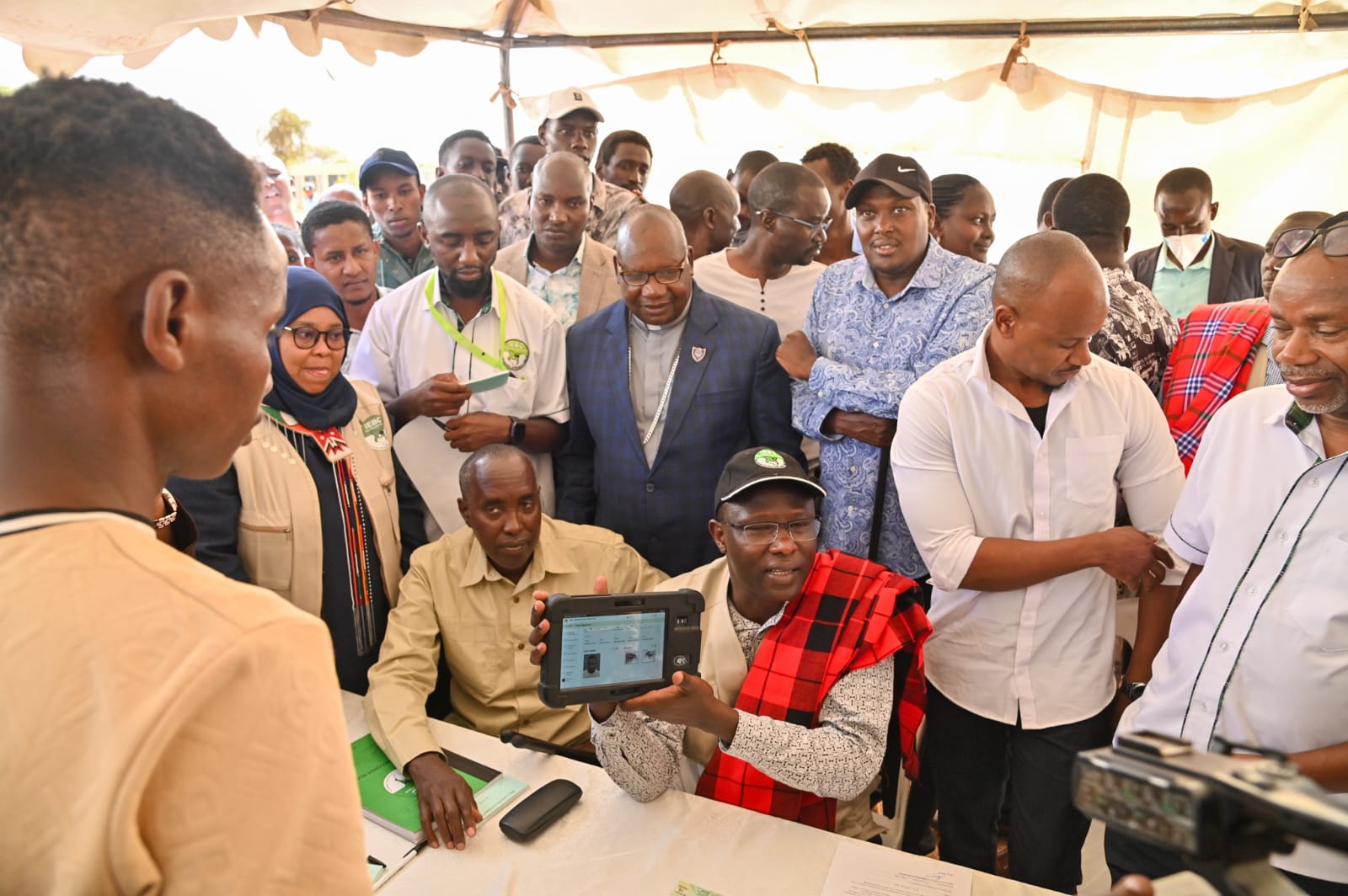 IEBC chairman Erastus Ethekon displays a BRV kit during the launch of the continuous voter registration exercise in Kajiado county on September 29, 2025. /IEBC
IEBC chairman Erastus Ethekon displays a BRV kit during the launch of the continuous voter registration exercise in Kajiado county on September 29, 2025. /IEBCThe Elections Observation Group has called on the Independent Electoral and Boundaries Commission to address public concerns over privacy and data protection following the introduction of iris scans in the ongoing voter registration exercise.
In a statement released on Wednesday, Elog said while it recognises the potential of iris technology to strengthen voter verification and improve the accuracy of the register, the new biometric system has raised questions about how sensitive personal data will be handled, stored and safeguarded.
“While this innovation can strengthen voter verification, it has also generated public concern over privacy and data protection,” the group said.
“IEBC should provide clear information on how iris data will be securely stored and used in compliance with the Data Protection Act (2019).”
IEBC has previously clarified that iris scanning in the ongoing continuous voter registration (CVR) exercise is not mandatory.
Speaking on September 30, a day after the launch of the exercise, IEBC Director of Voter Education and Partnerships Joyce Ekuam assured Kenyans that officials can proceed with registration even if a voter declines the iris scan.
“Inasmuch as we have included the iris, it is not compulsory. We can bypass and not take it with our KIEMS kits if you are not comfortable with it,” she said.
The clarification followed concerns by Kenyans online who feared that the new technology may infringe on data privacy rights.
The observer mission urged the commission to publicly disclose whether a Data Protection Impact Assessment (DPIA) was conducted before rolling out the new technology, and to clarify what systems or third parties, if any, may access the biometric data.
It said such transparency would be key to maintaining confidence in the electoral process.
Elog noted that although the CVR exercise had started smoothly across 278 constituencies, public awareness of the new biometric system and its implications remains limited.
It warned that without clear communication, misinformation could undermine the integrity of the registration process.
“IEBC should disclose how the new biometric identifiers integrate with existing voter data and what safeguards are in place against potential misuse,” the group said.
“Transparent explanation will not only enhance trust but also encourage more Kenyans to participate in the registration.”
Elog also drew attention to the need for better communication around the scope of the current registration exercise.
It said many Kenyans are unaware that registration is currently limited to constituency offices, a factor that could further dampen turnout.
“Awareness of this limitation remains low, particularly among youth and rural populations,” the statement said.
Elog recommended that IEBC strengthen its public messaging through multiple channels, including public meetings, religious organisations, local associations and media partnerships to ensure that information about where and how to register reaches all eligible citizens.
The group further advised IEBC to improve communication on voter transfer and registration locality to avoid confusion.
It said many citizens still have questions about whether they can register in one constituency and vote in another, an issue that should be addressed through simplified materials and guidance at local offices.
Elog also called for enhanced transparency and consistency in data publication throughout the voter registration period.
It urged IEBC to publish weekly progress updates to promote accountability and enable early corrective action in underperforming areas.
“The first week of the continuous voter registration exercise reflects operational readiness and growing public interest, yet it also highlights disparities that require immediate attention to sustain national momentum,” Elog said.
Elog chairperson Victor Nyongesa reaffirmed the group’s commitment to monitoring the process and promoting public confidence in the voter register.
He said transparent communication from IEBC, particularly on sensitive matters such as biometric data handling, would be crucial to building trust.
“Transparent communication and proactive responsiveness from the IEBC will be crucial in building public trust, encouraging participation and safeguarding the credibility of Kenya’s voter register ahead of the 2027 electoral cycle,” Nyongesa said.
Elog concluded by urging all eligible Kenyans to take advantage of the ongoing registration opportunity, even as it continues to observe the exercise with focus on accessibility, efficiency, data protection and adherence to electoral law.


















